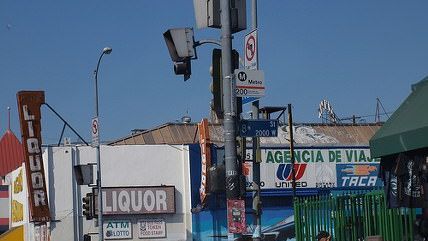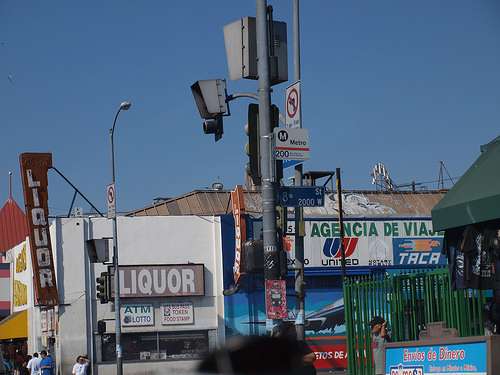'Promise Zones' Don't Fix What Truly Ails Poor Communities
Fostering economic recovery requires easing up on regulations

President Barack Obama has decided to make "income inequality" his latest – possibly his last – windmill to tilt at during his final term in office. Last week, commemorating the 50th anniversary of President Lyndon Johnson's "War on Poverty," Obama announced his first pack of what he hopes will be several "Promise Zones." He laid out his plan in a speech:
In my State of the Union address last year, I announced our commitment to identify more communities … where dedicated citizens are determined to make a difference and turn things around. And we challenged them. We said if you can demonstrate the ability and the will to launch an all-encompassing, all-hands-on-deck approach to reducing poverty and expanding opportunity, we'll help you get the resources to do it. We'll take resources from some of the programs that we're already doing and concentrate them. We'll make sure that our agencies are working together more effectively. We'll put in talent to help you plan. But we're also going to hold you accountable and measure your progress.

These are the president's new Promise Zones. The first five have been designated for parts of Los Angeles, San Antonio, Philadelphia, Southeast Kentucky, and the Choctaw Nation of Oklahoma. A fact sheet from the White House describes – in vague government buzzword jargon – what each community hopes to accomplish with this designation, focusing primarily on education and job training. It reads not so much like a new program in any respect but rather a way to direct federal funds to some more "shovel-ready" local programs that already exist or are in the works.
There's no new money in this program. Rather, what the administration is offering is special preference and assistance in landing federal grants. Obama is offering to cut "red tape," but he's not talking about the massive amounts of red tape any poor soul has to endure trying to engage in entrepreneurship in regulation-heavy Los Angeles, by way of example. What he really means is cutting the "red tape" between municipal governments and nonprofits trying to secure grants from the federal government. Essentially, the primary "promise" of the Promise Zone is that the federal bureaucracy pledges not to be as horrible and frustrating to deal with as it is to communities not designated as Promise Zone. What's not to love?
It's not that there are only bad ideas in the Promise Zones' plans. One of the goals of the Los Angeles zone is to encourage more use of bus rapid transit lines, an urban mass transit solution often touted by the Reason Foundation (the nonprofit think tank that publishes Reason.com and Reason magazine). The White House ends its summary of the Promise Zones' goals by calling on Congress to cut taxes in the designated areas, and the president's speech praised a charter school in Harlem for providing better education opportunities as part of a specialized program called the Harlem Children's Zone. The president's proposal isn't that different from Republican Kentucky Sen. Rand Paul's suggestion to create "Economic Freedom Zones" for Detroit and other depressed cities. Sen. Paul was even in attendance for Obama's speech rolling out the Promise Zones, and the president name-checked him.
But as Reason's Shikha Dalmia observed in December, all of Sen. Paul's plans do little to deal with the deeper problems that hamper Detroit's recovery – the regulatory superstructure: municipal, state and federal – that restrict free economic development and entrepreneurship. To put it another way: Does it matter whether a potential business's payroll tax burden is a couple of percentage points higher or lower when it can take months, years and thousands of dollars in fees and payments to various local, county and state agencies just to set up shop?
Los Angeles is a city that simply doesn't let its citizens live their own lives or make their own economic decisions. It just banned plastic bags. Parts of the city still have major restrictions on the construction of fast food restaurants, supply and demand be damned. The Los Angeles city government feels absolutely no shame at throwing regulation after regulation at a local burger stand, for example, demanding that its owner bear the burdens for fighting nearby crime, rather than its own police force. It treats businesses terribly, and there's no indication these Promise Zones will make life easier for the types of businesses who provide economic services for the poor.
For that matter, consider the Promise Zone's goals at improving education and training opportunities given California's anti-development regulatory climate. Let's even bring up one of the president's pet industries: renewable energy. Even in a state that is trying to increase its commitment to renewable energy, it's a nightmare to build new plants due to California's environmental regulations. Developers are pressured to enter into exclusive labor agreements with unions to avoid costly lawsuits that could force projects to drag on for years before construction, and the federal tax credits and loans don't prevent this problem. In California, having the right job training isn't enough to escape poverty. Sometimes citizens have to have the right connections or belong to the right unions to land a job.
It's also tough to square the administration's claim to want to reduce red tape with its promise of accountability and results. Those both mean paperwork and bureaucracies that program administrators will have to pay somebody to deal with. Promise Zones are as much a subsidy for the infrastructure (both public and private) overseeing the federal grant process as it is an effort to actually help anybody.
A real "Promise Zone" would tackle the actual barriers that prevent economic development in poor communities, but that involves truly understanding how much government interference on all levels hampers growth. The president believes the government is part of the solution to poverty, but there's no indication that he realizes how much the government is also the barrier.


Show Comments (34)